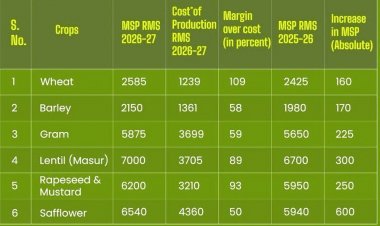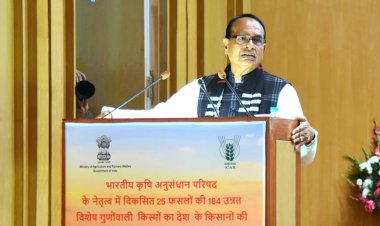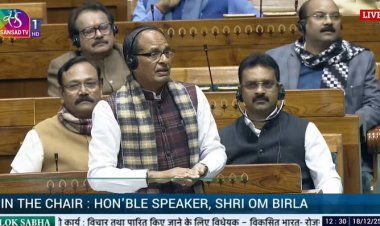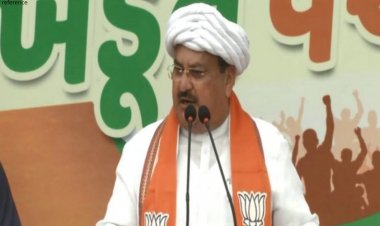Government Removes Minimum Export Price for Basmati and Onion
In a significant move before the assembly elections in Maharashtra and Haryana, the central government has made notable decisions concerning onion and Basmati rice exports. The government has removed the Minimum Export Price (MEP) for both commodities, which previously set the price floor for exports. Earlier, Basmati rice had an MEP of $950 per tonne, and onions were subject to an MEP of $550 per tonne.
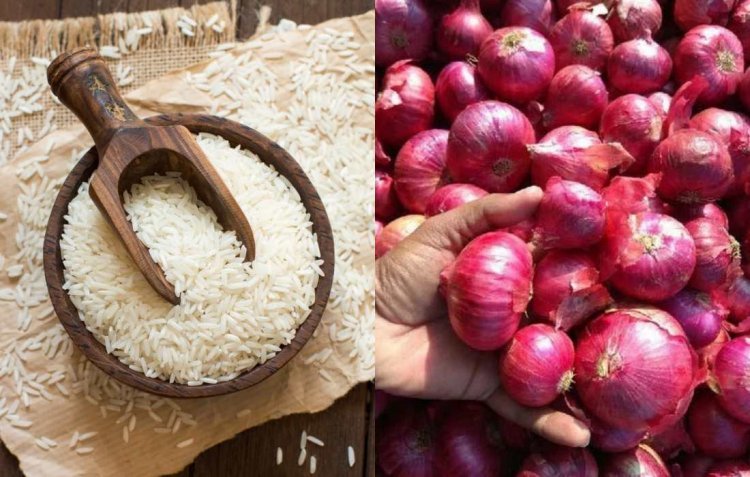
In a significant move before the assembly elections in Maharashtra and Haryana, the central government has made notable decisions concerning onion and Basmati rice exports. The government has removed the Minimum Export Price (MEP) for both commodities, which previously set the price floor for exports. Earlier, Basmati rice had an MEP of $950 per tonne, and onions were subject to an MEP of $550 per tonne. Additionally, the export duty on onions has been reduced from 40% to 20%, which is expected to provide relief to onion exporters.
According to a notification issued by the Directorate General of Foreign Trade (DGFT) on Friday, the MEP condition on onion exports has been removed with immediate effect and will remain so until further notice. Additionally, a communication from the Ministry of Commerce, dated 13th September and addressed to the Agricultural and Processed Food Products Export Development Authority (APEDA), confirmed that no MEP will be applied for the issuance of the Registration Cum Allocation Certificate (RCAC) for Basmati rice exporters.
Commerce Minister Piyush Goyal, in a statement, emphasized that the government's decision to remove the Minimum Export Price (MEP) on onions and Basmati rice would provide much-needed relief to farmers. Farmers in Haryana, especially those producing Basmati rice, have faced significant challenges in recent months due to these export restrictions. Prices in the Haryana mandis have fallen sharply, with Basmati rice trading as low as ₹2500 per quintal. Similarly, onion farmers in Maharashtra have also suffered due to the high export duty and MEP, reducing their competitiveness in international markets.
The discontent among farmers could have had serious political repercussions for the ruling BJP, particularly in these agriculturally significant states. By lifting the MEP and reducing export duties, the government appears to be mitigating potential electoral damage, aiming to win back the support of the farming community before voters head to the polls.
To ensure the availability of onions in the country and to control the prices, the central government banned the export of onions in December last year. Before the Lok Sabha elections, the ban on onion export was lifted on 4th May, 2024 but a minimum export price of $550 per ton was imposed.
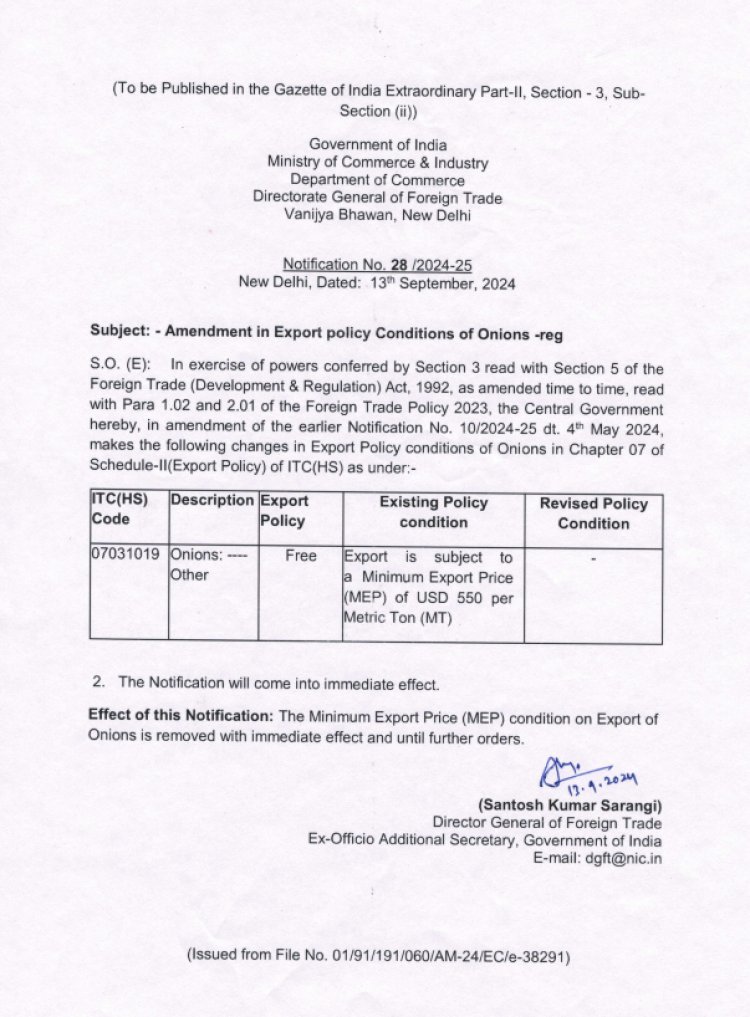
Onion is a big issue in Maharashtra
In Maharashtra, a key onion-producing state, the issue of onion prices had become a significant political matter even during the Lok Sabha elections. Acknowledging this, the central government has decided to lift the Minimum Export Price (MEP) on onions ahead of the upcoming Maharashtra assembly elections. Additionally, considering the supply and production outlook for onions in the new season, the government has also decided to ease export restrictions on onions, aiming to support farmers and stabilise the market.
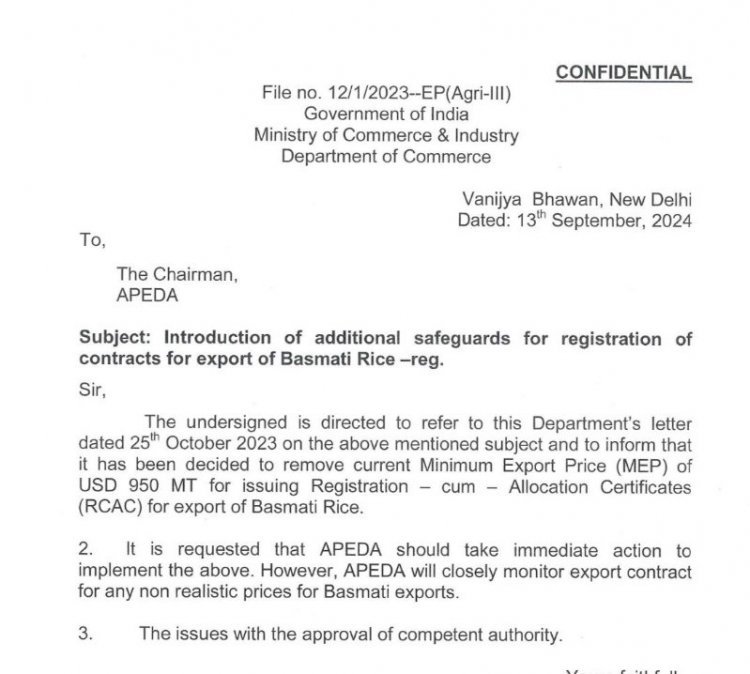
Basmati is important for Haryana
A minimum export price of $950 per tonne was previously imposed on Basmati rice exports. As a result, India's Basmati exports were being negatively impacted due to lower prices in the international market, allowing Pakistan to gain a competitive advantage. Meanwhile, in India, Basmati paddy prices dropped to ₹2500-3000 per quintal. This has caused significant frustration among farmers and commission agents in Haryana, a major Basmati-producing state. The restrictions on rice exports have led to financial losses for Haryana's paddy farmers and traders, and this discontent could influence the upcoming assembly elections.
In August 2023, the central government imposed a Minimum Export Price (MEP) of $1,200 per tonne on Basmati rice exports due to low rice production during the previous Kharif season. This MEP was later reduced to $950 per tonne in October 2023. However, even at this lower price, Indian traders struggled to compete in the global market, while Pakistan's Basmati exports benefited.
For a long time, Indian rice exporters had been urging the government to remove the $950 per tonne limit. Now, considering the potential political implications, domestic rice prices, and the upcoming supply of paddy from the new season, the government has decided to eliminate the MEP on Basmati rice.



 Join the RuralVoice whatsapp group
Join the RuralVoice whatsapp group

















